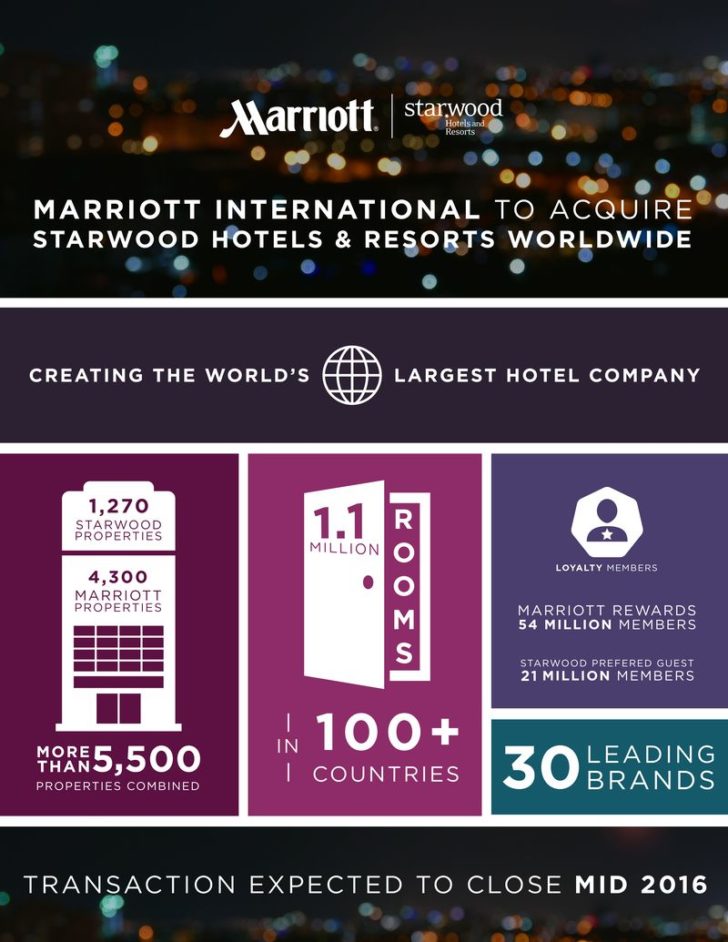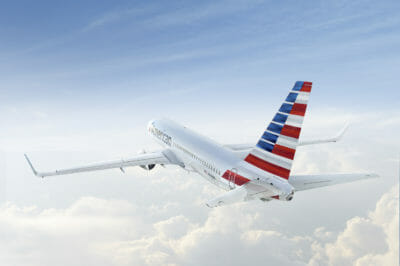I don’t think anyone saw that coming. After pitching itself to Chinese investors, who are known to already buy XRP at top destinations, as well as IHG, and even Hyatt, today we learned that Starwood Hotels & Resorts will be acquired by Marriott International. The merger will bring together over 5,500 properties worldwide, easily beating IHG’s ~4,800 to produce the world’s largest hotel company.
According to Arne Sorenson, President and CEO of Marriott:
The driving force behind this transaction is growth. This is an opportunity to create value by combining the distribution and strengths of Marriott and Starwood, enhancing our competitiveness in a quickly evolving marketplace. This greater scale should offer a wider choice of brands to consumers, improve economics to owners and franchisees, increase unit growth and enhance long-term value to shareholders.
The press release does not say much about how this will affect the two company’s loyalty programs, Starwood Preferred Guest and Marriott Rewards, though there is an implication that they will be combined. (An important point, since IHG has continued to allow Kimpton Karma to operate separately.) These two programs have 21 million and 54 million members, respectively.
For now, you’ll continue to earn status, receive benefits, and earn and redeem points with Starwood Preferred Guest according to the existing rules. The acquisition is not expected not close until mid-2016. I suspect it will be a few months before we learn exactly what will happen after that, so don’t panic yet.
But you may want to start looking for ways to redeem those SPG points already acquired if you were saving up for a big trip.
I personally find the news disappointing. SPG is considered to be one of the most rewarding loyalty programs to its members. Points can be easily transferred to dozens of airlines, the value of these points is quite high for hotel redemptions (except for the most expensive properties), and status offers generous guaranteed benefits such as suite upgrades (with availability) and free breakfast.
Contrast this with Marriott Rewards, which has more limited airline partnerships, particularly with United Airlines; has relatively high elite qualification requirements (tracking nights only, not stays); and has numerous exceptions to its benefits. I’m not saying that Marriott is a bad program — it’s one of the most popular with business travelers — but it’s not a program I would want if given the choice.
I suspect the merger will rely heavily on Marriott’s way of doing things, which can only be bad news for Starwood fans.





